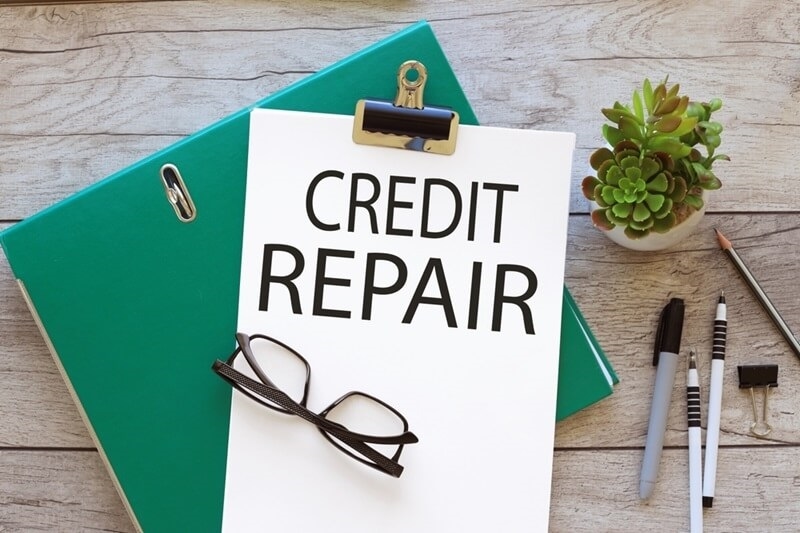
Building up your credit might seem hard when your score is low, but there are good ways to make it better. Many face money troubles, missed bills, or debt, but you can get better with time and good plans. This post will show you easy ways to credit building for bad credit, keeping the steps clear. If you want to buy a house, get a car loan, or just make your financial status better, fixing it is always possible.
Bad credit is having a low score because of late bills, a lot of debt, or financial issues. Scores range from 300 to 850. If it's under 580, it's seen as poor. This might seem bad, but scores can change, and your past doesn’t always keep you stuck with bad credit.
When you ask for loans or cards, people look at your score. A low score means higher cost and fewer choices, but taking steps to fix it can slowly give you better chances.

Here are key tips on fixing bad credit:
Fixing credit takes time, and it is not a fast cure. Focus on long-term habits. Think of this as mending trust with lenders. By always showing that you can manage credit well, your score will get better.
First, find out your exact situation. You can get a free credit report once a year from the top credit groups. Looking at your report helps you see what hurts your score. Watch for errors like:
Fixing errors is an easy tip to quickly lift your score. Tell the credit group about mistakes so they don't count against you.
Bill history is important to rebuild credit score. Even one missed payment can hurt. To stop missing them, set reminders or use auto-pay. Even paying the least amount is better than missing a bill date.
When fixing credit, being on time is key. Each timely payment helps your credit record. Over time, these actions mean more than past slip-ups.
This is about how much of your credit you use. Say your limit is $1,000 and you spend $800, it's 80%—too high. Experts say keep it under 30%.
Lower your balances and don’t max out cards. Even small steps help build your score back up. Low use shows lenders you don’t rely too much on what you borrow.
If normal cards say no because of low credit, secured cards are good. You put down a refundable deposit (like $300), which sets your limit. As the lender has a backup, it's easier to get.
Use the card for small buys and pay it off each month. Over time, careful use will be reported, and help you slowly fix your credit. Many find this a strong way to mend credit.
Some places offer small loans to help build credit for those with poor credit. You don’t get money right away; it's locked until you pay it back. As you pay each month, they tell the credit groups.
When it’s fully paid, you get the money. This both helps build credit and makes you save and pay back regularly.
It may look good to go for many cards or loans to help your credit, but each one adds a hard check. Too many checks drop your score for a bit and make it seem like you need credit badly.
Aim for good picks, not just more. Pick one or two items, like a safe card or a loan that helps build credit, and use them well. This wise move stops bad steps.
If old bills pull your report down, talk to lenders to plan a payback or fix the amount. Most are okay with working with you, more so if you pay a bit now and then.
Paying off what you owe won't clear it right away, but having debts marked as paid looks good. It shows you handle your duties well.
A close one who signs with you can get you better loan terms but be careful. If you miss a pay, both of your credits get hit. Be sure you can pay back before you try this.
Shutting old accounts might feel like a clean start, but it cuts the length of your credit history. Keep them open, even if you don't use them much. Long-term, good use helps build your credit over time.
Mixed types of credit, like a card, a small loan, or a store account, can help your score. But going for good over lots is key. Don't start ones you don't need. Manage one or two well.
If new, look for advice from free money helpers, online help, or credit groups. They offer lessons, budget counseling, and easy, step-by-step beginner credit advice. Understanding how credit works can prevent slip-ups in the future.
Daily habits matter as much as using solid cards or small loans. Make a budget and stick to it, build a safety fund, skip debt, or fast buys you don't need. This keeps your score safe and eases your mind.
When looking for credit repair tips, watch out for false promises to fix everything fast. Be wise. Real changes take time, and no one can wipe true bad marks fast.
Follow good steps like timely bill pay, less debt, and wise credit use.
Regular small acts make a big difference. You may not see fast shifts, but each right step builds your future money and health.
Getting your score right is one step, but keeping it good over time needs steady habits. Along with the normal advice on fixing credit, here are some daily practices that keep you on the right path:
By keeping up these habits, you focus on building good credit from now on, and you also set yourself up for a safe money future.
Restoring your credit is a slow going, disciplined, rational decision-making process. First, you need to obtain your report, fix the errors, and pay the bills on time. It is worth starting with low-risk cards or small loans to build some good ratings. Then you need to work on reducing your debt and limiting the number of times you are trying to get new credit.
With consistent work, you will improve your score, allowing you to have better money opportunities in the future.
This content was created by AI